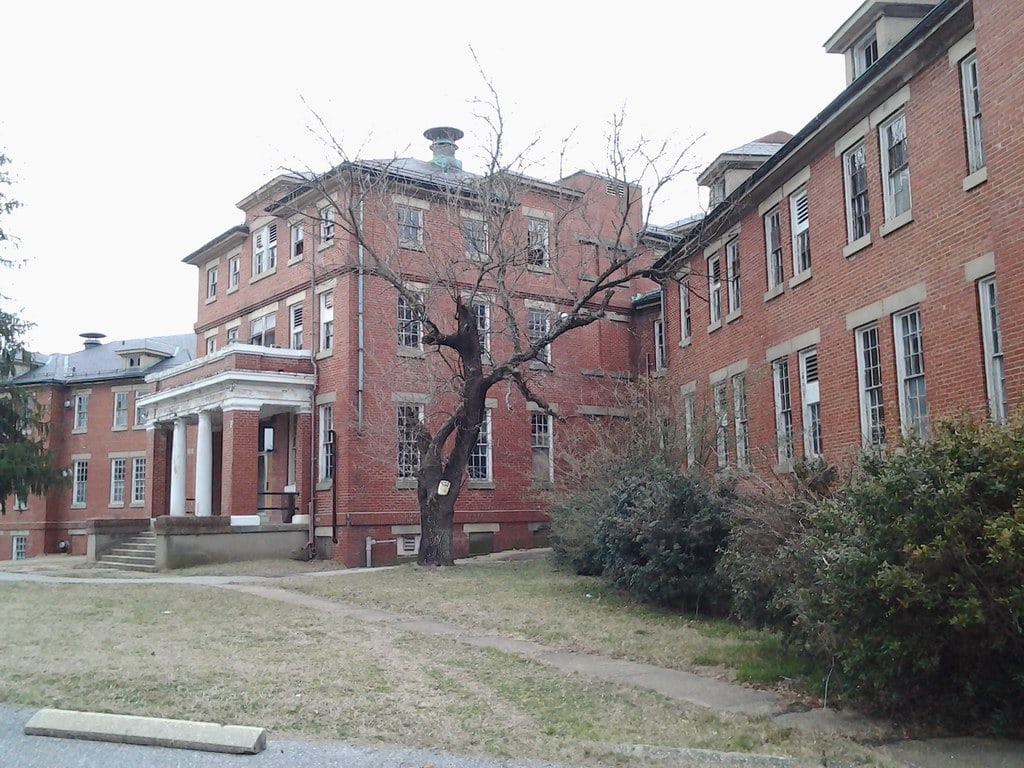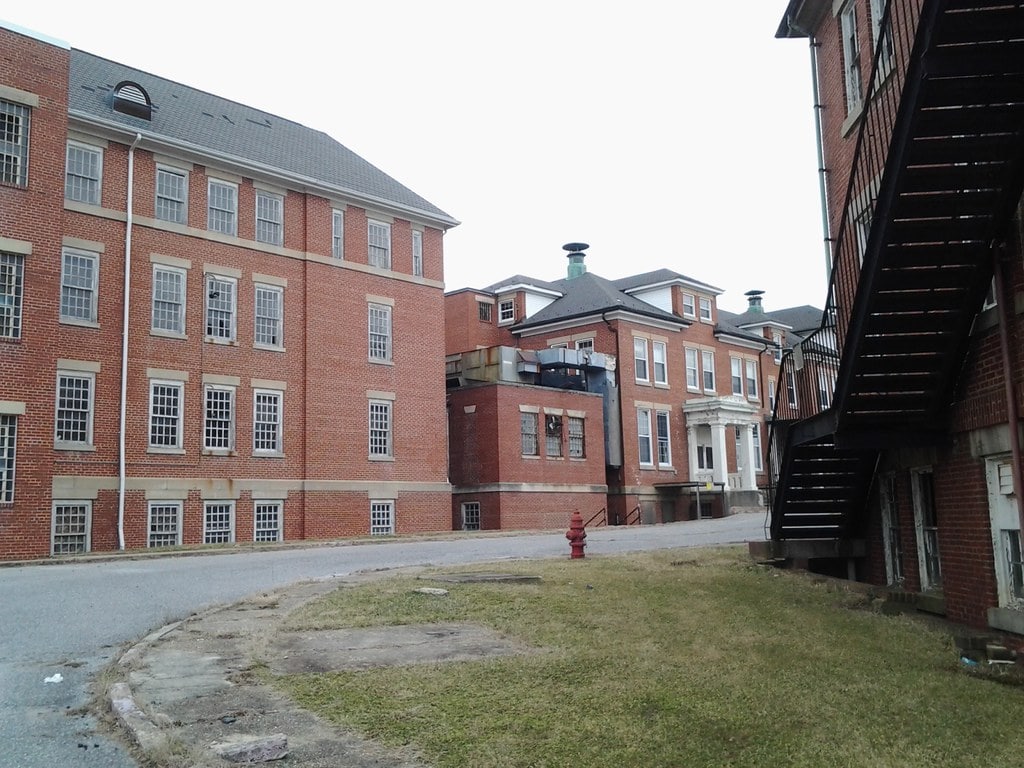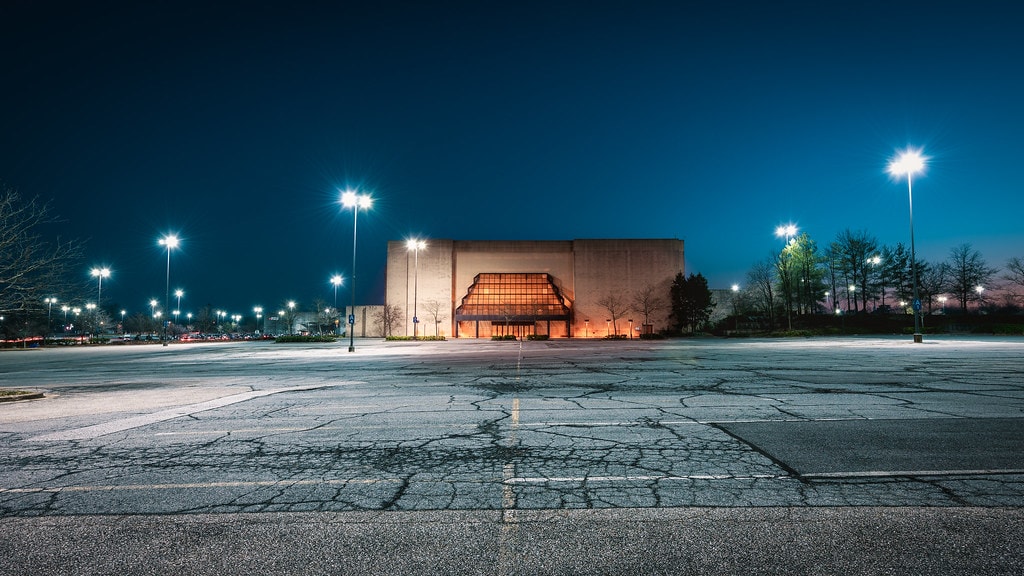The Origins of Crownsville Hospital Center
In the early 20th century, Maryland faced growing pressure to address the treatment of African-American psychiatric patients. Reports from the Maryland State Lunacy Commission highlighted overcrowding and neglect in existing facilities. Black patients were often housed in county almshouses or jails, where they lived in poor conditions with little medical care.
On April 11, 1910, the Maryland General Assembly passed legislation to establish a mental hospital exclusively for Black patients.
Lawmakers wanted the facility away from Baltimore, where existing psychiatric hospitals served white patients.
They needed a rural but accessible site. By December 13, 1910, the state had purchased a 566-acre tract of farmland in Crownsville for $19,000.
The land had previously been used for willow and tobacco farming.
Dr. Dan Hempeck was appointed as the first superintendent in May 1910. His role was to oversee construction, admit the first patients, and organize staff.
The hospital’s official name was “The Hospital for the Negro Insane of Maryland,” reinforcing the segregation policies of the time.
Building the Hospital: Labor and First Patients
Crownsville received its first 12 patients on March 13, 1911. They were housed in a makeshift camp near an old willow curing house.
Instead of focusing on recovery, these early patients became laborers. They built roads, cleared land, and harvested crops left by the previous owners.
The facility expanded quickly, and by July and September 1911, additional patients arrived to continue the work.
Construction of the first large building, called A Building, began in October 1912.
Patients did much of the heavy labor themselves. Some worked as “hod carriers,” hauling bricks and mortar. Others assisted electricians and plumbers.
State records show that in just ten weeks, patients excavated 10,000 cubic yards of earth and unloaded 238 train cars filled with cement, stone, and supplies.
Men worked outside in construction, while women handled indoor tasks. Female patients knitted and mended clothes for staff and other patients.
Hospital reports from 1912 described a young epileptic boy, only 10 years old, who had been trained to operate the laundry ringer.
He and two adult male patients washed and ironed over 40,000 pieces of clothing that year.

Early Medical Conditions and Disease Outbreaks
With overcrowding and limited medical resources, disease spread quickly. Smallpox and scarlet fever outbreaks hit the facility soon after it opened.
The hospital also struggled with water contamination, which caused additional health problems.
Tuberculosis was the biggest concern. Annual reports from 1914 and 1915 showed that nearly 30% of Crownsville’s deaths were from tuberculosis.
Patients who contracted the disease had few treatment options. The hospital had no isolation wards except for temporary outdoor structures used during the summer.
In October 1915, Crownsville received 200 patients transferred from Baltimore’s Bayview Medical Center (now Johns Hopkins Bayview Medical Center).
Many of these patients already had tuberculosis, making it harder to control the spread of the illness.
Although the facility had only been open for a few years, it was already struggling with issues that would persist for decades.
Expansion, Overcrowding, and Controversial Treatments
A Growing Population and Strained Resources
By 1920, Crownsville Hospital housed 521 patients, but the facility had only two doctors, including the superintendent.
The staff included 17 nurses, a single social worker, and about 18 other workers.
With limited resources, the hospital depended on patient labor for daily operations.
Almost 70% of the patients had job assignments, from cleaning to farming.
During the 1920s and 1930s, admissions increased, pushing Crownsville past its intended capacity.
By 1929, records showed 55 patient discharges but 92 deaths that year.
The patient population kept climbing, reaching over 1,000 by the mid-1930s. New buildings were constructed, but space remained an issue.
Diseases remained a major problem. Tuberculosis continued to spread, and the hospital still had no dedicated isolation unit.
The Maryland Department of Mental Hygiene acknowledged the issue in 1939 when it opened a tuberculosis ward at Springfield State Hospital, but it only served white patients.
Black patients at Crownsville had no such facility.
New Medical Practices and Ethical Questions
In the 1930s, Crownsville introduced insulin shock therapy, a treatment meant to “reset” the brain by inducing a coma.
By the 1940s, doctors began experimenting with malaria therapy, infecting psychiatric patients with malaria parasites.
The idea was that the high fevers caused by malaria would fight mental illness.
Electroconvulsive therapy (ECT) was introduced in the 1940s, and by 1948, over 100 patients had undergone electric shock treatments.
Records show that 56 patients received malaria therapy, and 33 underwent lobotomies.
Unlike other institutions, Crownsville performed fewer lobotomies, largely because the hospital’s superintendent at the time, Dr. Morgenstern, opposed the procedure.
In his 1950 report, he called lobotomies a “management shortcut” rather than a real treatment.
Despite these new therapies, conditions inside the hospital kept getting worse. By the end of the 1940s, the patient count had surged past 1,800, though the facility was only designed for 1,100.
The situation worsened during World War II when medical staff shortages left entire wards with little supervision.
In a 1945 letter to the governor, the Commissioner of Mental Hygiene wrote about a single staff member responsible for 90 criminally insane men overnight.
In 1948 and 1949, The Baltimore Sun ran a series called Maryland’s Shame, exposing the hospital’s overcrowding and harsh conditions.
The articles described children lying on bare floors, patients without clothes, and entire wards with just one or two attendants.
The state faced growing pressure to address these problems, but change was slow.

Racial Barriers and the Push for Integration
A Segregated System
From its founding, Crownsville was Maryland‘s only mental institution for African Americans.
For decades, the hospital was staffed entirely by white employees. Black workers were denied direct-care positions, including nursing roles.
The National Association for the Advancement of Colored People (NAACP) pushed for change in the 1940s, but the Maryland Department of Mental Hygiene resisted.
In 1948, change finally began. Crownsville hired its first African-American staff members, Vernon Sparks in the Psychology Department and Gwendolyn Lee in Social Work.
However, direct-care roles were still off-limits for Black workers. That changed in 1952 when Black nurses and attendants were finally allowed to work in patient care.
By 1959, Black staff made up 45% of Crownsville’s workforce. In contrast, the other large state hospitals had between 6% and 8% Black employees.
Early Integration Attempts
Patient integration took longer. In 1954, the superintendent at Crownsville attempted to transfer 15 young Black children to Rosewood State Training School, a previously all-white facility for people with developmental disabilities.
The move faced pushback from the state, and the superintendent resigned the following year.
Adolescent patients were finally fully integrated in 1962, and the adult wards followed in 1963.
This shift marked the end of Crownsville’s role as a segregated hospital, but it did not erase decades of disparity in care, funding, and treatment quality.
The First Black Superintendent
In 1964, Crownsville appointed Dr. George McKenzie Phillips as its first African-American superintendent.
He took over at a time when mental health treatment was changing nationwide.
The push toward outpatient care and deinstitutionalization had already begun, and hospitals like Crownsville were seeing patient numbers decline.
Dr. Phillips expanded day treatment programs and worked with clinics in Baltimore and Southern Maryland to offer more outpatient options.
The hospital also started training programs for psychiatry, psychology, social work, and dance therapy.
Despite these improvements, Crownsville continued to struggle with funding shortages, aging buildings, and an outdated care model.
The shift toward community-based care and medication-based treatments meant that the hospital’s role was beginning to shrink.
By the end of the 1960s, the facility was no longer overcrowded, but it faced a different challenge, staying relevant in a mental health system that was moving away from institutionalization.
Decline of Crownsville Hospital and Changing Mental Health Policies
Shifting Focus in Mental Health Care
By the 1970s, the landscape of mental health treatment in the U.S. was changing. Federal policies emphasized community-based care instead of long-term hospitalization.
The introduction of new psychiatric medications allowed patients to be treated outside institutional settings, reducing the need for large state-run hospitals like Crownsville.
Maryland followed this trend, expanding outpatient mental health services while scaling back hospital admissions.
Crownsville’s patient population began to drop, mirroring the nationwide shift away from institutional care.
By 1980, the facility had around 1,000 patients, less than half its peak in the 1950s.
Declining Conditions and Budget Cuts
As patient numbers decreased, state funding also declined. Maintenance of the aging buildings became difficult.
Reports from the late 1980s and early 1990s described leaking roofs, outdated plumbing, and electrical problems across the campus.
Staffing shortages made things worse. By the mid-1990s, entire wings of the hospital were underused or abandoned.
During this period, Maryland increased funding for alternative treatment programs.
More psychiatric patients were placed in group homes or outpatient programs instead of long-term hospitalization.
Crownsville, once central to the state’s mental health system, became less relevant.
The Final Years and Closure
By 2000, Crownsville housed fewer than 200 patients. Maryland’s Department of Health and Mental Hygiene reviewed the hospital’s viability and determined that keeping it open no longer made sense.
The state decided to close Crownsville, transferring patients to Spring Grove Hospital Center and Springfield Hospital Center.
In July 2004, the hospital officially shut down. Medical records, equipment, and staff were relocated.
The facility, which had once held thousands of patients, was now empty. The grounds remained under state control for years before new plans for redevelopment emerged.
Crownsville Hospital Memorial Park: A Plan for Change
After the hospital’s closure in 2004, Crownsville’s buildings sat vacant for nearly two decades.
The Maryland Department of Health maintained the property but did little to repurpose the space.
The complex included over 50 structures, many of them in poor condition. Some were used for government storage, but most remained untouched.
The property’s future remained uncertain until December 2022, when Anne Arundel County acquired the land from the state.
The county announced plans to transform the site into a public park with a focus on history, healing, and community services.
The Crownsville Hospital Memorial Park Master Plan, finalized in February 2025, lays out how the space will be transformed over the next several years.
The plan is about honoring the past while building something useful for the future.
Many of the hospital’s original buildings will be preserved and repurposed. Some will house a museum, art spaces, and mental health treatment centers.
Others, too damaged to save, will be torn down to make way for walking trails, gardens, and recreational areas.
The site will also expand its connection to the Bacon Ridge Natural Area, making it part of a 1,400-acre green space.
A key feature of the park is the Path of Reverence, a walkway leading to the hospital cemetery, where more than 1,700 former patients are buried.
The goal is to acknowledge the hospital’s painful history, including racial segregation and unethical medical treatments, while creating a peaceful space for visitors.
The transformation won’t happen overnight. First, the county will upgrade utilities, remove unsafe buildings, and improve public access.
Over time, the park will add more community programs, outdoor spaces, and educational opportunities.
Funding will come from local, state, and federal sources, as well as private investments.
The project aims to turn Crownsville into a place of reflection, education, and wellness.
Instead of fading into history, the site will serve future generations while remembering those who came before.
















I’m 83 and remember Crownsville well. While I didn’t live in Maryland at the time I spent my summers here with relatives. At least one, and perhaps more, of my relatives worked at Crownsville. I also had an uncle that worked at Henryton State Hospital, which also no longer exists.
Your comments about Crownsville Hospital Center show how deeply intertwined our personal stories can be with these historic places. Thank you for your memories of Crownsville.
I’ve visited this facility in wonder ( and been chased away by security) and have seen old pictures of what it used to be. It was not pleasant to learn of it’s History however, I am glad to read that AA has taken over and will breath new life in this Facility. The souls can now rest In peace knowing their presence mattered or were not lost and not forgotten. There is always hope!
Thanks for sharing your experience. It’s a reminder of the importance of acknowledging our history while looking toward the future. I share your sentiment that every presence matters.